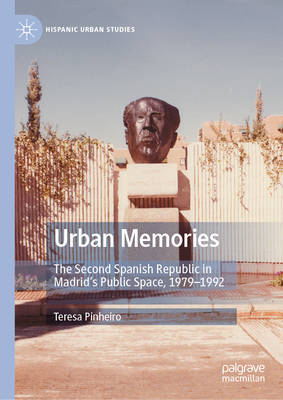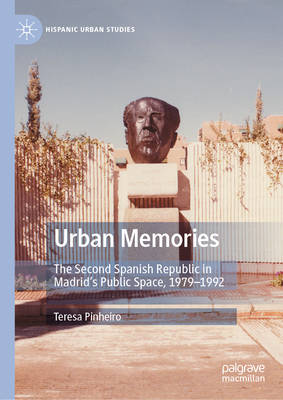
Bedankt voor het vertrouwen het afgelopen jaar! Om jou te bedanken bieden we GRATIS verzending (in België) aan op alles gedurende de hele maand januari.
- Afhalen na 1 uur in een winkel met voorraad
- In januari gratis thuislevering in België
- Ruim aanbod met 7 miljoen producten
Bedankt voor het vertrouwen het afgelopen jaar! Om jou te bedanken bieden we GRATIS verzending (in België) aan op alles gedurende de hele maand januari.
- Afhalen na 1 uur in een winkel met voorraad
- In januari gratis thuislevering in België
- Ruim aanbod met 7 miljoen producten
Zoeken
€ 138,95
+ 277 punten
Omschrijving
The book explores the symbolic emergence of the Second Spanish Republic in Madrid's public space in the aftermath of Francisco Franco's dictatorship. Despite the constraints of a transition to democracy premised on restoring the Bourbon monarchy and promoting national reconciliation, Madrid provided exceptional conditions for recovering republican memory. The city's left-wing administration, elected in the first democratic municipal election in 1979, pursued a cautious yet affirmative politics of memory toward Spain's republican past. Drawing on empirical research, the study focuses on mnemonic materialisation of the Second Spanish Republic through street nomenclature, monuments and plaques established between 1979 and 1992. Most of these memorials endure to this day, having withstood contestation, theft and vandalism. By reconstructing their emergence and tracing their evolving public presence, the book offers a nuanced account of how democratic memory practices took shape amid the tensions and contradictions of Spain's negotiated political transition.
Specificaties
Betrokkenen
- Auteur(s):
- Uitgeverij:
Inhoud
- Aantal bladzijden:
- 331
- Taal:
- Engels
- Reeks:
Eigenschappen
- Productcode (EAN):
- 9783032005090
- Verschijningsdatum:
- 29/10/2025
- Uitvoering:
- Hardcover
- Formaat:
- Genaaid
- Afmetingen:
- 148 mm x 210 mm
- Gewicht:
- 576 g

Alleen bij Standaard Boekhandel
+ 277 punten op je klantenkaart van Standaard Boekhandel
Beoordelingen
We publiceren alleen reviews die voldoen aan de voorwaarden voor reviews. Bekijk onze voorwaarden voor reviews.









